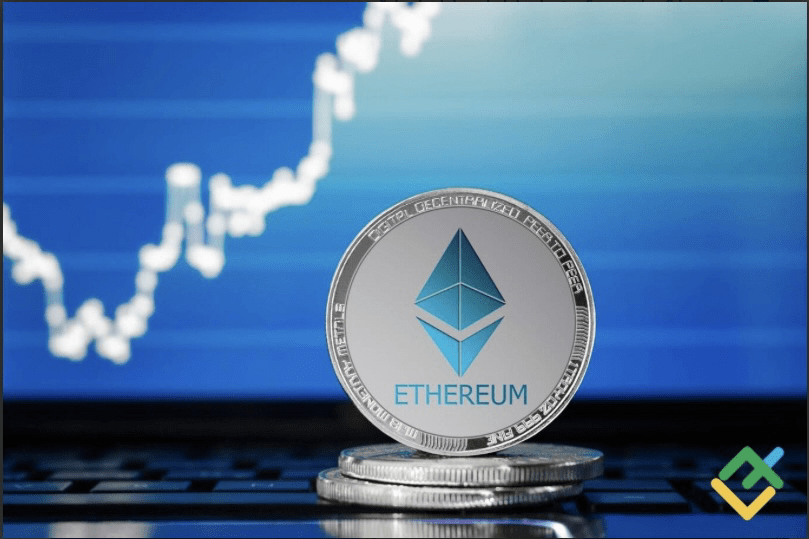A detailed report on Ethereum (Ethereum)
Ethereum is not just another digital currency; it is a leading decentralized platform based on blockchain technology that enables developers to build decentralized applications (dApps) and run smart contracts. Ethereum emerged in 2015 by programmer Vitalik Buterin and quickly gained widespread popularity to become the second-largest digital currency by market value after Bitcoin.
The difference between Ethereum and Bitcoin:
Although both rely on blockchain technology, there are fundamental differences between Ethereum and Bitcoin:
* Primary purpose: Bitcoin was primarily designed to be a peer-to-peer electronic cash system and a store of value. While Ethereum aims to be a global platform for decentralized applications, the Ether (ETH) currency is the fuel that powers this platform.
* Blockchain technology: Bitcoin relies on a relatively simple blockchain that focuses on recording transactions. In contrast, Ethereum's blockchain is more complex and flexible, allowing for the execution of smart contracts that contain programmable conditions and protocols.
* Smart contracts: these are the main feature that distinguishes Ethereum. Smart contracts are programs stored on the blockchain and automatically executed when certain conditions are met. This technology has opened wide horizons for diverse applications such as decentralized finance (DeFi), non-fungible tokens (NFTs), decentralized autonomous organizations (DAOs), and more.
* Transaction speed and fees: historically, Ethereum's transaction speeds have been slower and its fees higher compared to some other blockchains. However, ongoing updates like "Ethereum 2.0" (which transitioned to "The Merge") aim to significantly improve these aspects.
* Consensus mechanism: Bitcoin uses a proof-of-work (PoW) mechanism to secure the network and verify transactions. Meanwhile, Ethereum successfully transitioned to a proof-of-stake (PoS) mechanism after the "The Merge" process, making it more energy-efficient and secure.
How does Ethereum work?
Ethereum relies on a distributed network of computers (nodes) that work together to verify transactions and add them to the blockchain. The working process of Ethereum includes the following key elements:
* Ether (ETH): the native digital currency of the Ethereum network. It is used to pay transaction fees (known as "Gas") and execute smart contracts.
* Smart Contracts: these are programs written in a programming language specific to Ethereum (like Solidity) and stored on the blockchain. These contracts can execute automatic actions when certain conditions are met, without the need for intermediaries.
* Proof-of-stake (PoS) mechanism: after "The Merge", Ethereum relies on a proof-of-stake mechanism to secure the network. In this mechanism, participants ("validators") stake a certain amount of Ether to become eligible to verify transactions and create new blocks on the blockchain. Validators are rewarded with Ether for their work.
* Ethereum Virtual Machine (EVM): an execution environment that allows smart contracts to run on the Ethereum network. The EVM acts as a decentralized global computer that can execute smart contract code.
* Gas fees: these are the fees that users pay to execute transactions or interact with smart contracts on the Ethereum network. The value of gas fees depends on the congestion of the network and the complexity of the required operation.
Ethereum applications:
Ethereum technology has enabled the emergence of a wide range of decentralized applications in various fields, including:
* Decentralized finance (DeFi): decentralized lending and borrowing platforms, decentralized exchanges (DEXs), synthetic assets, and more.
* Non-fungible tokens (NFTs): unique digital assets representing ownership of items such as artwork, collectibles, and virtual land.
* Decentralized autonomous organizations (DAOs): decentralized organizational structures governed by rules programmed on the blockchain and voted on by the organization's members.
* Decentralized gaming: games that rely on blockchain technology and provide true ownership of in-game assets.
* Decentralized supply chains: tracking and managing products transparently and securely.
* Decentralized digital identity: solutions for managing digital identities securely and decentrally.
Advantages of Ethereum:
* Decentralization: not subject to the control of any central authority, which increases transparency, security, and resistance to censorship.
* Flexibility and programmability: allows developers to build a wide range of applications using smart contracts.
* Strong developer community: Ethereum has an active and large community of developers and researchers who continuously work on developing and improving the platform.
* Continuous innovation: Ethereum is witnessing ongoing developments and updates aimed at improving performance, scalability, and security.
Ethereum's flaws and challenges:
* Scalability: despite recent improvements, achieving scalability to accommodate a large number of users and transactions remains an ongoing challenge.
* Gas fees: transaction fees can be high during periods of network congestion, making some applications uneconomical for users with small amounts.
* Complexity: Ethereum technology and smart contracts can be complex to understand and use for new users.
* Security risks: despite the security of the blockchain itself, smart contracts may have security vulnerabilities that can be exploited.
The future of Ethereum:
Ethereum is considered a cornerstone in the world of Web3 and the decentralized digital economy. As developments and upgrades continue, such as focusing on layer-2 solutions to increase scalability and reduce fees, Ethereum is expected to play a pivotal role in shaping the future of the internet and digital applications.
Conclusion:
Ethereum is more than just a digital currency; it is a revolutionary platform that enables the building of decentralized applications and the execution of smart contracts. Despite the challenges it faces, Ethereum has enormous potential and continues to lead innovation in the blockchain technology field. Understanding how Ethereum works and its importance is essential for anyone interested in the future of technology and finance.
I hope this report is useful and can be copied as you requested. If you have any other questions, feel free to ask!
